Transparent, adaptable, and reproducible
data analysis
with Snakemake
Johannes Köster
University of Duisburg-Essen
dataset
results
Data analysis
"Let me do that by hand..."

dataset
results
dataset
dataset
dataset
dataset
dataset


"Let me do that by hand..."
Data analysis
- check computational validity
- apply same analysis to new data
- check methodological validity
- understand analysis
Data analysis
Reproducibility
Transparency
- modify analysis
- extend analysis
Adaptability
>567k downloads since 2015
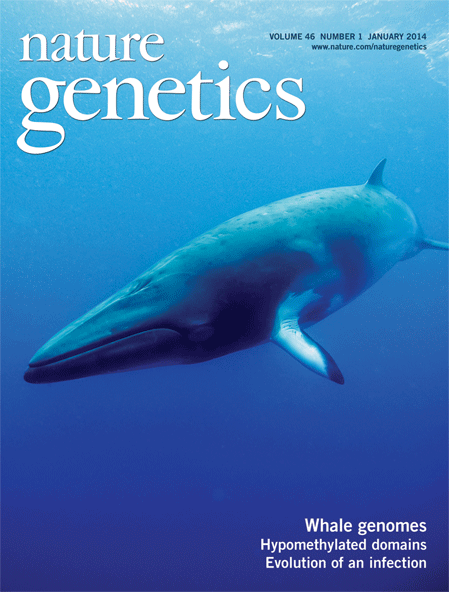

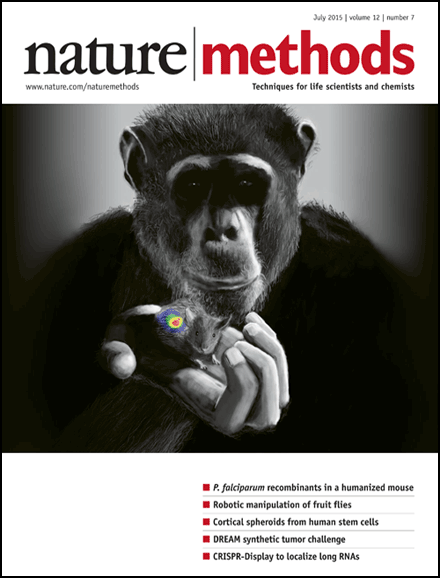

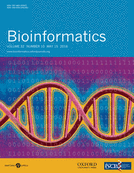


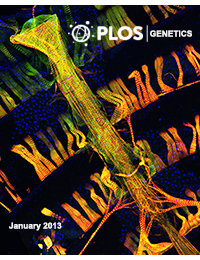


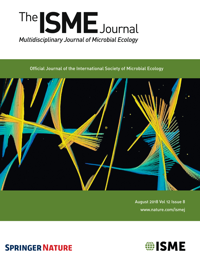

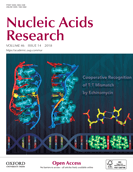


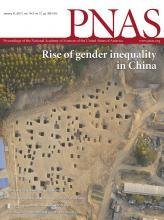


>1500 citations
>7 citations per week in 2021

- automation
- scalability
- portability
- readability
- documentation
- traceability
Data analysis
Reproducibility
Transparency
- readability
- portability
- scalability
Adaptability
Data analysis
- automation
- scalability
- portability
- readability
- documentation
- traceability
Reproducibility
Transparency
- readability
- portability
- scalability
Adaptability
dataset
results
dataset
dataset
dataset
dataset
dataset
Define workflows
in terms of rules
Define workflows
in terms of rules
rule mytask:
input:
"path/to/{dataset}.txt"
output:
"result/{dataset}.txt"
script:
"scripts/myscript.R"
rule myfiltration:
input:
"result/{dataset}.txt"
output:
"result/{dataset}.filtered.txt"
shell:
"mycommand {input} > {output}"
rule aggregate:
input:
"results/dataset1.filtered.txt",
"results/dataset2.filtered.txt"
output:
"plots/myplot.pdf"
script:
"scripts/myplot.R"Define workflows
in terms of rules
Define workflows
in terms of rules
rule mytask:
input:
"data/{sample}.txt"
output:
"result/{sample}.txt"
shell:
"some-tool {input} > {output}"rule name
how to create output from input
define
- input
- output
- log files
- parameters
- resources
rule mytask:
input:
"path/to/{dataset}.txt"
output:
"result/{dataset}.txt"
script:
"scripts/myscript.R"
rule myfiltration:
input:
"result/{dataset}.txt"
output:
"result/{dataset}.filtered.txt"
shell:
"mycommand {input} > {output}"
rule aggregate:
input:
"results/dataset1.filtered.txt",
"results/dataset2.filtered.txt"
output:
"plots/myplot.pdf"
script:
"scripts/myplot.R"Define workflows
in terms of rules

Dependencies are determined top-down
Solution:
- For a given target, a rule that can be applied to create it is determined (a job).
- For the input files of the rule, go on recursively.
- If no target is specified, Snakemake tries to apply the first rule in the workflow.
Problem:
for a given set of targets, find a composition of rules to create them
Dependencies are determined top-down
rule all:
input:
"D1.sorted.txt",
"D2.sorted.txt",
"D3.sorted.txt"
rule sort:
input:
"path/to/{dataset}.txt"
output:
"{dataset}.sorted.txt"
shell:
"sort {input} > {output}"Job 1: apply rule all
(a target rule that just collects results)
Job i: apply rule sort to create i-th input of job 1
Dependencies are determined top-down
DATASETS = ["D1", "D2", "D3"]
rule all:
input:
["{dataset}.sorted.txt".format(dataset=ds)
for ds in DATASETS]
rule sort:
input:
"path/to/{dataset}.txt"
output:
"{dataset}.sorted.txt"
shell:
"sort {input} > {output}"Job 1: apply rule all
(a target rule that just collects results)
Job i: apply rule sort to create i-th input of job 1
use arbitrary Python code in your workflow
Dependencies are determined top-down
DATASETS = ["D1", "D2", "D3"]
rule all:
input:
expand("{dataset}.sorted.txt", dataset=DATASETS)
rule sort:
input:
"path/to/{dataset}.txt"
output:
"{dataset}.sorted.txt"
shell:
"sort {input} > {output}"Job 1: apply rule all
(a target rule that just collects results)
Job i: apply rule sort to create i-th input of job 1
use arbitrary Python code in your workflow
Directed acyclic graph (DAG) of jobs

Boilerplate-free integration of scripts
rule mytask:
input:
"data/{sample}.txt"
output:
"result/{sample}.txt"
script:
"scripts/myscript.py"reusable scripts:
- Python
- R
- Julia
- Rust
import pandas as pd
data = pd.read_table(snakemake.input[0])
data = data.sort_values("id")
data.to_csv(snakemake.output[0], sep="\t")Python:
data <- read.table(snakemake@input[[1]])
data <- data[order(data$id),]
write.table(data, file = snakemake@output[[1]])Boilerplate-free integration of scripts
R:
import polar as pl
pl.read_csv(&snakemake.input[0])
.sort()
.to_csv(&snakemake.output[0])Rust:
Jupyter notebook integration
rule mytask:
input:
"data/{sample}.txt"
output:
"result/{sample}.txt"
notebook:
"notebooks/mynotebook.ipynb"- Integrated interactive edit mode.
- Automatic generalization for reuse in other jobs.
Reusable wrappers
rule map_reads:
input:
"{sample}.bam"
output:
"{sample}.sorted.bam"
wrapper:
"0.22.0/bio/samtools/sort"reuseable wrappers from central repository
Reusable wrappers
Output handling
rule mytask:
input:
"data/{sample}.txt"
output:
temp("result/{sample}.txt")
shell:
"some-tool {input} > {output}"Output handling
rule mytask:
input:
"data/{sample}.txt"
output:
protected("result/{sample}.txt")
shell:
"some-tool {input} > {output}"Output handling
rule mytask:
input:
"data/{sample}.txt"
output:
pipe("result/{sample}.txt")
shell:
"some-tool {input} > {output}"Using and combining workflows
configfile: "config/config.yaml"
module dna_seq:
snakefile:
github("snakemake-workflows/dna-seq-gatk-variant-calling", path="workflow/Snakefile", tag="v1.17.0")
config:
config
use rule * from dna_seq# easily extend the workflow
rule plot_vafs:
input:
"filtered/all.vcf.gz"
output:
"results/plots/vafs.svg"
notebook:
"notebooks/plot-vafs.py.ipynb"Using and combining workflows
configfile: "config/config.yaml"
module dna_seq:
snakefile:
github("snakemake-workflows/dna-seq-gatk-variant-calling", path="workflow/Snakefile", tag="v1.17.0")
config:
config["dna-seq"]
use rule * from dna_seq as dna_seq_*# easily extend the workflow
rule plot_vafs:
input:
"filtered/all.vcf.gz"
output:
"results/plots/vafs.svg"
notebook:
"notebooks/plot-vafs.py.ipynb"module rna_seq:
snakefile:
github("snakemake-workflows/rna-seq-kallisto-sleuth", path="workflow/Snakefile", tag="v1.0.0")
config:
config["rna-seq"]
use rule * from rna_seq as rna_seq_*Data analysis
- automation
- scalability
- portability
- readability
- documentation
- traceability
Reproducibility
Transparency
- readability
- portability
- scalability
Adaptability
Job execution
A job is executed if and only if
- output file is target and does not exist
- output file needed by another executed job and does not exist
- input file newer than output file
- input file will be updated by other job
- any change in the rule (code, params, software stack)
- execution is enforced
determined via breadth-first-search on DAG of jobs
Resources and priorities
rule sort:
input:
"path/to/{dataset}.txt"
output:
"{dataset}.sorted.txt"
priority: 1
threads: 4
resources: mem_mb=100
shell:
"sort --parallel {threads} {input} > {output}"refer to defined thread number
define arbitrary additional resources
define used threads
job selection
job resource usage
free resources
job temp file consumption
temp file lifetime fraction
job priority
job thread usage
Scheduling
temp file size
temp file deletion
DAG partitioning

--groups a=g1 b=g1
--groups a=g1 b=g1 --group-components g1=2
--groups a=g1 b=g1 --group-components g1=5
Scalable to any platform



workstation
compute server
cluster






grid computing
cloud computing



Between workflow caching
dataset
results
dataset
dataset
dataset
dataset
dataset
shared data
Between workflow caching

Data analysis
- automation
- scalability
- portability
- readability
- documentation
- traceability
Reproducibility
Transparency
- readability
- portability
- scalability
Adaptability
rule mytask:
input:
"path/to/{dataset}.txt"
output:
"result/{dataset}.txt"
conda:
"envs/some-tool.yaml"
shell:
"some-tool {input} > {output}"Conda integration
channels:
- conda-forge
dependencies:
- some-tool =2.3.1
- some-lib =1.1.2Container integration
rule mytask:
input:
"path/to/{dataset}.txt"
output:
"result/{dataset}.txt"
container:
"docker://biocontainers/some-tool#2.3.1"
shell:
"some-tool {input} > {output}"Containerization
containerized:
"docker://username/myworkflow:1.0.0"
rule mytask:
input:
"path/to/{dataset}.txt"
output:
"result/{dataset}.txt"
conda:
"envs/some-tool.yaml"
shell:
"some-tool {input} > {output}"snakemake --containerize > DockerfileData analysis
- automation
- scalability
- portability
- readability
- documentation
- traceability
Reproducibility
Transparency
- readability
- portability
- scalability
Adaptability
Self-contained HTML reports
Snakemake workflow catalog
Conclusion
- Besides reproducibility, transparency and adaptability are equally important.
- Almost never, research can be done in a single big script or package.
- Snakemake helps to avoid boilerplate for deployment, data provenance and scalability, and make analyses more structured.
- Snakemake further allows reporting with minimal effort.
https://snakemake.github.io

Best practices
├── .gitignore
├── README.md
├── LICENSE.md
├── workflow
│ ├── resources
| │ └── someresouce.bed
│ ├── rules
| │ ├── some_task.smk
| │ └── some_other_task.smk
│ ├── envs
| │ ├── tool1.yaml
| │ └── tool2.yaml
│ ├── scripts
| │ ├── script1.py
| │ └── script2.R
│ ├── notebooks
| │ ├── notebook1.py.ipynb
| │ └── notebook2.r.ipynb
│ ├── report
| │ ├── plot1.rst
| │ └── plot2.rst
| └── Snakefile
├── config
│ ├── config.yaml
│ └── some-sheet.tsv
├── results
└── resourcesStick to a standardized structure
Goal:
Help readers to navigate to those parts they are interested in.
- separate config, code, resources, and results
- have separate folders for separate parts of the source
- partition workflow into larger tasks which are performed by sets of rules, have a separate file per task
Code readability
rule mytask:
input:
"path/to/{dataset}.txt"
output:
"result/{dataset}.txt"
log:
"logs/mytask/{dataset}.log"
conda:
"envs/myenv.yaml"
shell:
"some-tool {input} > {output} 2> {log}"- simple, short, descriptive names
- reasonable directory structure
- use shell for short commands, use script and notebook for complex stuff
- put non-rule code (helper functions, config parsing) into separate module, e.g. workflow/rules/common.smk
- conda/container for every rule
- prefer small envs over large ones (maintainability, performance)
- define log files
- think about which rules' outputs shall be cached across workflows
Snakemake lecture
By Johannes Köster
Snakemake lecture
- 881



